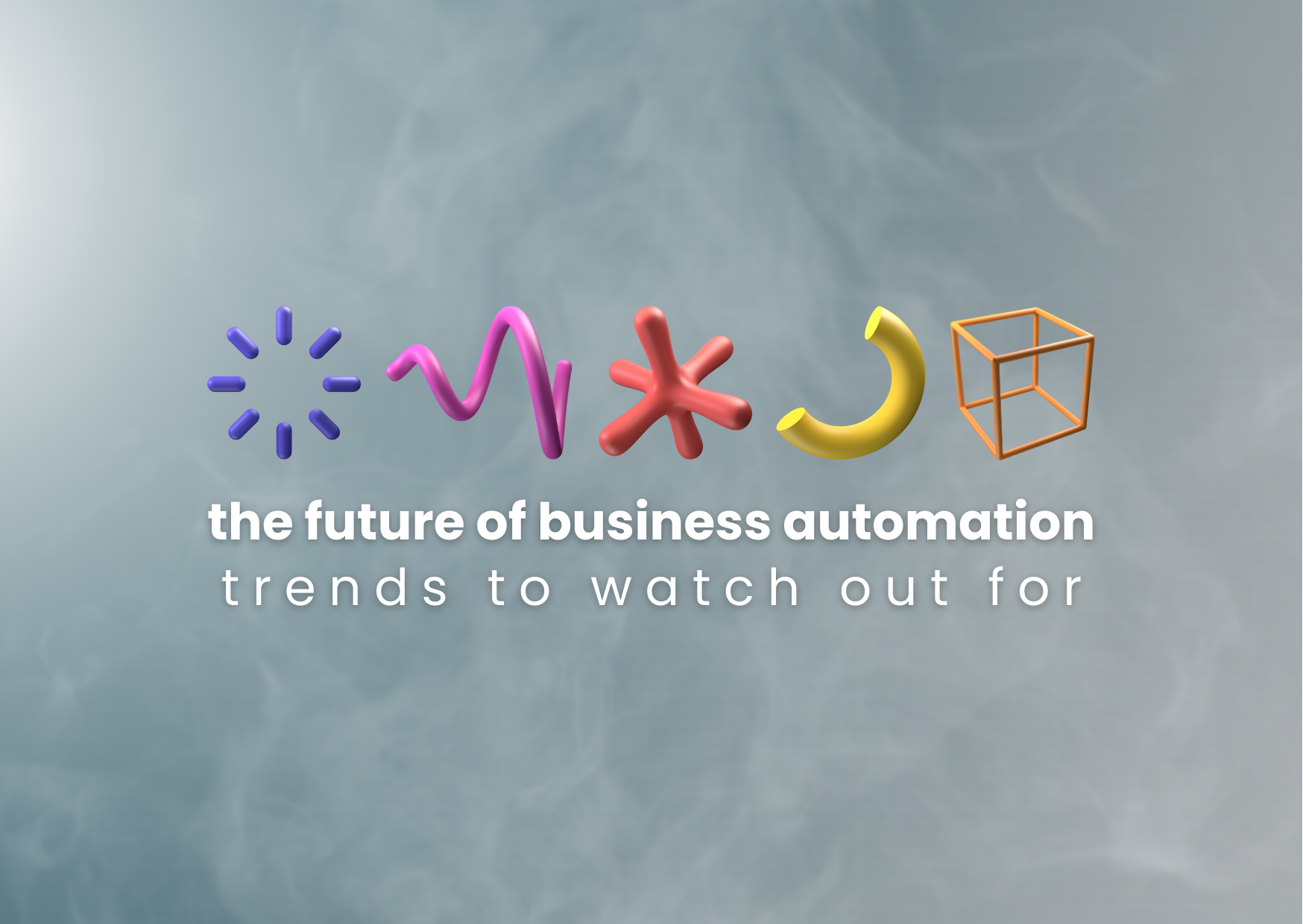The Future of Business Automation: Trends to Watch Out For
Business automation is revolutionizing the way companies operate, from small startups to large corporations. By streamlining processes and reducing manual labor, businesses can save time and money while increasing efficiency and productivity. In this guide, we'll explore the latest trends in business automation and how they can benefit your organization.
Artificial Intelligence and Machine Learning.
Artificial intelligence (AI) and machine learning are two of the most exciting trends in business automation. AI refers to the ability of machines to perform tasks that would normally require human intelligence, such as recognizing speech or making decisions. Machine learning is a subset of AI that involves training machines to learn from data and improve their performance over time. Together, these technologies are transforming the way businesses operate, from customer service chatbots to predictive analytics for sales and marketing. As AI and machine learning continue to evolve, we can expect to see even more innovative applications in the world of business automation.
Robotic Process Automation (RPA).
Robotic Process Automation (RPA) is a type of business automation that uses software robots to perform repetitive tasks, such as data entry or invoice processing. RPA can help businesses save time and money by automating these tasks, freeing up employees to focus on more complex and strategic work. As RPA technology continues to improve, we can expect to see even more widespread adoption across industries. In fact, according to a report by Grand View Research, the global RPA market is expected to reach $25.56 billion by 2027.
Cloud-Based Automation.
Cloud-based automation is becoming increasingly popular as more businesses move their operations to the cloud. With cloud-based automation, businesses can automate processes and workflows without the need for on-premise hardware or software. This allows for greater flexibility and scalability, as businesses can easily scale up or down their automation needs as their business grows or changes. Additionally, cloud-based automation can improve collaboration and communication between teams, as all team members can access the same data and workflows from anywhere with an internet connection.
Internet of Things (IoT) Integration.
The integration of Internet of Things (IoT) technology with business automation is a trend to watch out for in the future. IoT devices can collect and transmit data in real-time, allowing businesses to automate processes and make data-driven decisions. For example, a manufacturing plant could use IoT sensors to monitor equipment performance and automatically schedule maintenance when needed. This integration can also lead to improved efficiency and cost savings, as businesses can optimize their operations based on real-time data.

